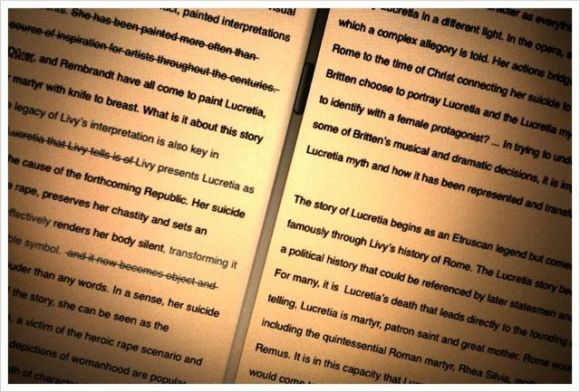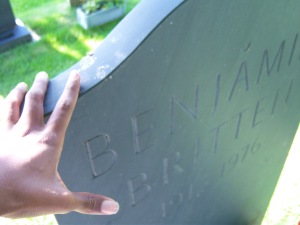here is an entry from my personal blog the little lion written earlier this fall, entitled, “i choose to mourn the artist”, a sort of conglomeration of feelings regarding the passing of michael jackson and musings on problems of art versus artist. it belongs here, though i wrote it before this blog existed and it’s a good way to finish the “Music in Crisis” section i’ve been dealing with in MH4. hope you guys like wagner.
it would be completely unnecessary for me to rehash the last seven-day news cycle for you, so i won’t. i will say, however, that all of the talk, on TV, in the streets and online has caused me to take a hard look at michael jackson and not just that but our artist culture. the title of this blog came from an incredibly inspiring comment found on, of all places, livejournal’s favorite gossip community, Oh No They Didn’t!. to summarize, the comment stated that we have to make a choice whether to mourn the person or mourn the artist in their passing. but why are we forced to make this choice? well, because doing one is not as simple as doing another. to mourn michael jackson the person means mourning all of the baggage that comes with him: the prescription drugs, the weird behavior, the loss of childhood, the possible molestation, etc. and let’s just say that makes most people uncomfortable, let alone reverent. mourning the artist is much easier: recognizing the genius of someone who was able to create music that has stood the test of (pop) time and influenced, touched and inspired so many people across the world for so many years. now for many, the existence of the “person” just gets too much in the way of the “artist” and we come back to square one. what to do? ah, if only there were other instances like this…
Gesamtkunstwerk
wagner is not a subject easily broached in musical academia. the study of wagner is fraught with problems: do we read wagner’s prose? how do we address works such as Die Meistersinger and Parsifal? do we acknowledge the effect of wagner post-wagner and, if so, do we speak of it musically, extra-musically or both? but no matter how you slice it, it’s always staring you in the face (unless you’re a wagnerite and choose to ignore it, which i do not recommend). this dilemma stared at me earlier this spring when one of my colloquia centered around Die Meistersinger and the ideal man. when discussing the opera, the question arose: do we say that the work is filled with musical subtleties, poignant and witty or is it all about “the jews”? for many in the class, it was hard to reconcile themselves especially after watching scenes from the opera and having the “jew” problem be pointed out. you would laugh at one part, which was admittedly funny, staged well, witty and humorous and then someone would say “but he’s caricaturizing and denegrating jews!” and then you feel bad. but on the side you say, “well that was still kind of funny and brilliantly sung”. wagner’s feelings towards jews (along with frenchmen, britons, christians and those trying to destroy art) is well known. the part its plays in his musical creations is more problematic. the point of all of this is, how can we respect and admire someone with such racial hatred and vitriol and someone so easily co-opted by the like of the third reich? for some there is no respect and admiration. from its founding and inception, the nation of israel has made it illegal to perform wagner’s music within its borders. there is no separating the “person” from the “artist”. but for others, myself included, it’s not that easy. and though it might not be as pertinent to some and may seem blasphemous to others, like wagner, the tale of the two michael jacksons are os strong, each, on their own, that it seems impossible to ignore one for the other.
anyone in musical scholarship who tells you that they have a definitive point of view on wagner is lying to you. my dealings with jewish musicians, scholars and performers who tell me about the utter disdain they have for wagner don’t seem to have completely closed the book on him, meaning, they are still willing to discuss him. and again, it’s never about the music. they have every right to their opinion as does anyone else. for me, i’m always conflicted about wagner and i’m actually happy about that because i am constantly rethinking my feelings about music in general.
Mein liebes Kind, komm, geh mit mir…
thinking about all of this also made me think of someone in whom i have invested a lot of time researching, benjamin britten. in my dealings with many, it seems that britten’s relationship with young boys may have overshadowed the genius of his music. a dear friend of mine had the privilege to work with britten as a young boy, singing as a male alto in premieres/performances of works such as the War Requiem and Noye’s Fludde. in talking with me, he explained how pained he was that, when recounting his stories to others, the first thing they ask is “did britten have an inappropriate relationship with you/did he ever touch you” or make some kind of snarky comment. he loved his time working with britten and his ilk and he calls it one of the greatest musical experiences of his life but feels like he can’t share how much these events have shaped him because of this. whenever this discussion arises, he becomes very defensive. for those who aren’t aware of this part of the composer’s history, britten struggled for quite some time with his need to be surrounded by teenage boys. to him, they were an inspiration and “boy as inspiration/muse/representation of another life” appears in many of britten’s operas: Peter Grimes, Turn of the Screw and, most notably, Death in Venice. these muses represent the part of britten’s life that britten was reticent to leave behind. ahead of him were the adult representations of life that britten had trouble acknowledging: an adult relationship with partner peter pears, dealing professionally with those who stood by him and cared about his well-being, etc. auden, who collaborated with britten on some of his most well known works, wrote in a letter to britten that he needed to forgo these relationships with boys. it was shortly after britten received this letter that britten did what he did to so many before: he dissolved his ties with the poet (it should also be known that auden also encouraged britten to reconcile himself with his homosexuality, another adult aspect of britten’s life with which the composer had great difficulty).
the role that these relationships play in the creation of britten’s music is undeniable. and it is worth asking the question whether or not some of these works would have even existed with out them. again, the separation between the man and the artist is difficult. while there is no proof and no real allegations that britten ever did anything illicit with any of these boys, the rumors still remain and cast a cloud over his musical achievements. is it on the scale of the molestation charges placed before michael jackson? most likely not but the comparison remains. in my scholarship of britten, this question will always arise no matter how much i choose to focus on the music and i am faced with the decision of whether or not to deal with it. while i feel this adds a fascinating layer of depth to him, for many, its more of a hinderance.
Epilogue
now is the accusation of molesting boys as bad as a glaring hatred for others? for some, yes. for some this behavior is irreconcilable. for some, no matter how genius the music, no matter how large the impact, there is just no getting around this. the personal acts of one’s life can sometimes, and often, get in the way of one’s contributions to society. yet for some reason, artists never seem to be forgiven. for great political figures who have committed indiscretion after indiscretion in their personal lives, history forgives. however, the good that art does, the way it changes and shapes our lives, the profound impact it has seems to not be enough to forgive any artist, no matter how great. is that because the lives of our great geniuses are filled with so much turmoil and discrepancy? people tend to forget that these all-too-human failings motivate genius. are their actions excusable? most likely not. does revering that genius mean that we have ignore, forgo and block out those actions? not by any means. if anything, it is the human element that gives insight to the creative one. i don’t know whether or not “man” and “artist” can ever be separated or if they should. michael jackson’s loss of childhood and indescribable young life motivated him to write the music that is not only biographical for him but has proven to be biographical for so many, so many without childhoods, for those who have felt lost and alone and for those who have just experienced any type of hardship in their lives. wagner’s view on total art pushed him to create works unlike anything that had been seen up to that point and just like the end of Götterdammerung, the fiery demise of the musical gods of the pan-austrian empire in the destruction that was the end of WWII, paved the way (unbeknownst to wagner) for a new musical rebirth. the struggle between childhood and adulthood, what one wants and what one realizes, our dreams and our base nature manifested itself in the darkness of britten’s most autobiographical operas and allowed for a new direction in opera, one that is being, slowly but surely, rediscovered. i am saddened that these human elements have taken over and claimed the lives of those who lived and experienced them. i, for one, ask that we not forget the music, for it is important. but what i really ask, of all of those who encounter this dilemma, is to let the music and the life speak for themselves, and after considering both of these things, that you make your decision or at least try to. don’t ever let it be as simple as choosing between the “man” and the “artist” because, in reality, those two things are never really separate. they are a part of each other and need each other to survive.




